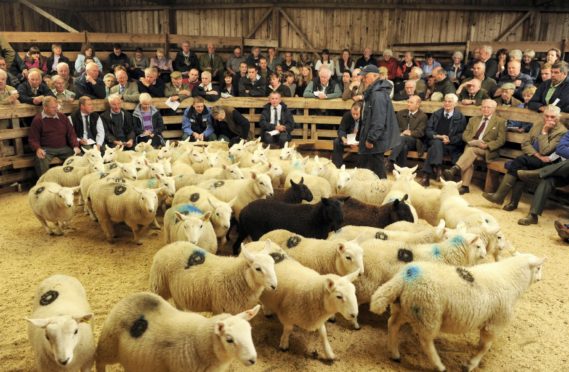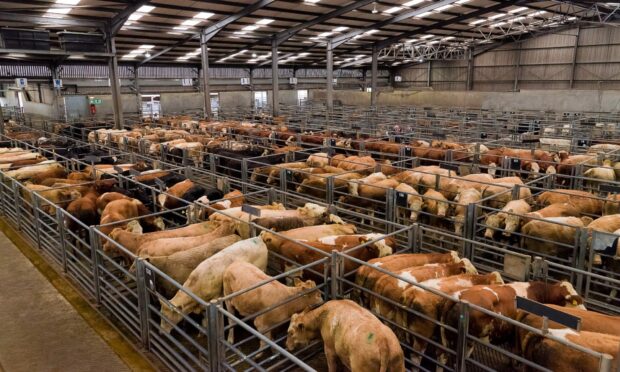Livestock marts are integral to rural life and more than a place to simply buy and sell livestock, according to new research.
The study – commissioned by Prince Charles’ rural charity, The Prince’s Countryside Fund, and conducted by researchers at the University of Exeter – looked at the social benefit, functions of, and prospects for, livestock auction marts in the UK.
Its report – More than a Mart – estimates there are 142 livestock marts operating across the UK today, which is down from 939 in the 1960s, and each market adds value to their local communities in different ways.
The study found an estimated one in five visitors to markets come for social reasons alone, and many believe markets offer solutions to the issue of poor mental health in the farming industry.
“The livestock auction mart is one of the few places left where members of the agricultural community can congregate together on a regular basis and share their experiences,” said lead author of the report, Dr Caroline Nye from the University of Exeter’s Centre for Rural Policy Research.
“As farmers become more and more isolated from each other, as well as from their customer, the importance of these spaces has become so much greater than that of their original purpose.
“They are key hubs from which members of the agricultural community can be supported to become more resilient both in terms of business and of health, and they should be recognised, utilised and supported as such.”
The report urges farmers to engage with the various support services and social activities at their marts, and to take advantage of any events, training, or discussion groups operating out of them.
It calls on government to make use of auction marts as “essential centres of learning” to engage with the farming community, and for farmer support organisations to proactively work with marts to offer support to the farming community
Mart operators are urged to pursue business diversification opportunities, engage with younger farmers through targeted activity, and to ensure staff are supported to deal with mental health challenges – both their own and those of mart attendees – through appropriate training such as suicide awareness or mental health first aid schemes.
Institute of Auctioneers and Appraisers in Scotland (IAAS) executive director, Neil Wilson, welcomed the study’s findings and said: “The Institute welcomes The Princes Countryside Fund report and its recognition of the fundamentally important social element and community connection that marts provide to rural communities, as well as their role as vibrant hubs for knowledge exchange, business, and physical and mental health checks of farmers.
“As the report points out though, if marts are not commercially successful, they will not be there to provide all of these vital benefits.”
He added: “We need Scotland’s marts to be fully utilised by the livestock chain for the buying and selling of stock; for marts to be an active tool in farmers’ boxes and regulators of fair trade.
“There is no better space than live marts, for buyers and sellers, to achieve the best and fairest price.”
The More than a Mart report is online at princescountrysidefund.org.uk/our-impact/our-research

